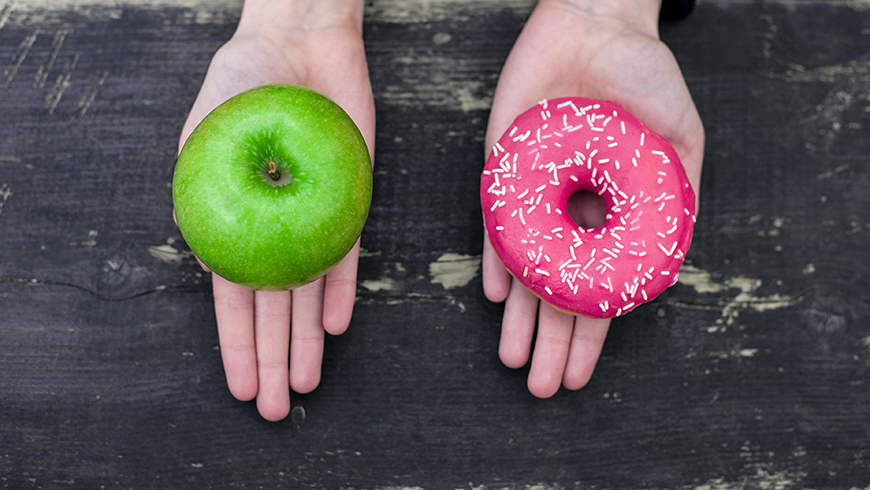
Life is full of tough choices. Eat a triple-scoop ice cream cone now, or resist and have a less tasty but ultimately more rewarding dinner with friends in an hour?
Those trying to kick a drug habit, however, face a much harder choice: between seeking the immediate but ultimately costly pleasure of relapsing, and resisting in hopes of reaping the future rewards of continued abstinence.
In a step toward helping such individuals, University of Minnesota researchers have discovered how such seemingly simple—albeit difficult—decisions involve separate neural processes. This became clear in experiments with mice, where prior exposure to cocaine disrupted the ability to make tough but ultimately smart initial decisions, while morphine interfered with the ability to re-evaluate and reverse a costly decision while there was still time.
“This discovery can guide future work to refine the separate stages of decision-making,” says Mark Thomas, a neuroscience professor and a principal investigator on the study. “It also points the way to treating addiction with more targeted therapies.”
The work is published in Nature Communications.
Restaurant Row
In the study, mice ate all their food for the day during multiple trips around “restaurant row,” a track with four feeding stations, each stocked with food pellets in a different flavor. In the “offer area” of a station, the mice were cued as to how long they would have to wait for the food in an adjoining “wait area.”
Mice could skip the station or opt for the food by entering the wait area, where waits ranged up to 30 seconds. In the wait area, they could re-evaluate their decision and quit before the food arrived if they changed their minds.
Because they had only an hour a day in restaurant row, the mice were motivated to seek as many pellets as possible—a smart strategy. But they were also motivated to wait longer at stations with their favorite flavors—a potentially costly strategy.
Different Drugs, Different Effects
The researchers found that previous repeated exposure to cocaine disrupted the process of deliberation that usually prevented costly choices in the offer area. That is, mice took more time deciding on food offers whose wait times exceeded what they normally would have tolerated—and they tended to take those offers anyway.
In contrast, previous repeated exposure to morphine made mice less likely to correct costly errors by making an early exit from the wait area. When they did correct one, they took longer to do it.
Thus, cocaine disrupted initial decision-making, morphine the ability to re-evaluate and reverse a poor decision.
“This indicates that the brain has distinct, and different, neural circuits for evaluating whether to seek a reward in the first place and to evaluate, once the decision to seek is made, whether it is worthwhile to continue to wait,” says David Redish, also a professor of neuroscience and a principal investigator on the study.
The Longer We’ve Waited, the Longer We’ll Wait
In related work, Redish, Thomas, and other colleagues asked how the time it takes to decide to seek a reward affects how long we’re willing to wait for it.
This is the economic concept of “sunk costs,” meaning the more we’ve irrevocably invested in a decision—whether money, time, or effort—the less willing we are to quit waiting around post-decision. Think about deciding to call a business, then being put on hold—the longer we’ve waited, the less likely most of us are to hang up.
The researchers studied how long mice, rats, and humans took to decide on various rewards and how long they would wait for delivery. Sure enough, all showed sensitivity to sunk costs: The longer they had waited, the more likely they were to stick it out. But, Redish emphasizes, these sunk cost effects only appeared once the subjects had committed to the decision.
Surprisingly, however, the time it took to make the initial decision had no bearing on how long any species would subsequently wait for a reward.
“These findings may help future research in education or neuropsychiatry by shedding light on diagnostic or intervention strategies and revealing the roles of neurally distinct decision systems,” says neuroscience graduate student Brian Sweis, who performed experiments in both studies.